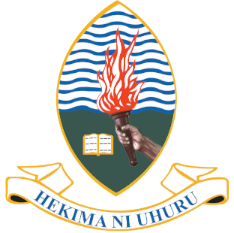
Telecom Business in Tanzania Operating Environments
Description
Today’s networks are a result of continuous Research and Development by academia, vendors, global interest groups, and standards bodies (e.g., ITU and IEEE). For example, we see that the latest smartphones can operate in a heterogeneous network environment and simultaneously operate on numerous wireless network architectures. The range of products and services, use cases, and bearer services is also expanding rapidly. Therefore, all employees (or, at least, all the key staff) involved with the telecoms industry should understand and get acquainted with the business from end to end and not just the silos they work from every day. Staff needs to understand how different departments or parts of the company, suppliers, contractors, and other entities fit together in the value chain to provide services to the customers. In essence, the industry requires that all staff become more customer-focused, entrepreneurial, innovative, and cost-revenue conscious. This course is, therefore, purposely interdisciplinary in nature to help staff understand the industry and the business at large.
Objectives
The provision of Telecommunication services in Tanzania is still at very low levels compared with many other countries. Both TCRA and ITU statistics concur in the conclusion that the penetration rates for both voice and internet services are low. This course reviews the situation and empowers telco staff to understand various aspects of the telecoms industry and its peculiarities in the Tanzanian operating environments. Our goal is to help participants contribute effectively in solving business, operational, and managerial problems in delivering telecommunications services in Tanzania.
Learning outcomes
|
By the end of the course, the participants should be equipped with sufficient knowledge and professional skills to perform or achieve the following: |
|
|
1. |
Draw a clear picture of the telecoms industry (Fixed and Mobile) and describe its current and future business and markets perspectives. |
|
2. |
Understand Fixed and Mobile technologies and give their strengths, weaknesses, and failures (SWOT Analysis) as well as reasons behind their adoptions. |
|
3. |
Describe best practices and latest developments in the telecoms technology space. |
|
4. |
Understand the Tanzania operating environments and implications on telecoms services provision. |
|
5. |
Understand Telecoms service characteristics and their links to the underlying network capabilities. |
|
6. |
Understand the Tanzania Policy, Legal and Regulatory framework and their implications to the telecoms business. |
|
7. |
Develop cost and revenue consciousness through techno-economic evaluations. |
|
8. |
Carry out techno-economic evaluation of newly introduced products and services or of new network deployment. |
Topics
- (1) Local and global perspectives of the Telecoms Market (industry analysis, major industry players, markets, vendors, and statistics)
- (2) Radio and cellular network principles
- (3) Mobile networks (call connection procedures, operations, and security)
- (4) The user experience (use cases, network KPIs, Applications, and Handsets)
- (5) Corporate Finance
- (6) Cost/volume/Profit Analysis
- (7) Tele-Traffic, Forecasting, and Predictions
- (8) Leadership (Motivational Talk)
- (9) Backhaul and its cost implications
- (10) Impact of government policies, Legal and Regulatory affairs on the provision of Telecoms Services
Target Group
Both technical and non-technical staff of Telco and MNOs can attend. The course is more suitable for junior and middle-level staff and those who have joined the industry from other businesses or those from none telecoms industries, such as banking and legal firms.
Course Materials
Each registered participant will receive a copy of instructors’ slides, a template for techno-economic evaluation of telecoms projects, and selected drone video clips of rural and suburban towns as typical operating environments in Tanzania.
Certificate of Attendance
Participants will be awarded certificates of attendance by the University of Dar es Salaam.
Fee
(1) TZS 450,000 (Tanzanians)
(2) USD 200 (Foreigners)
Payment
All payments should be made centrally through Control Numbers provided by the University of Dar es Salaam. After registration, a Control Number and invoice will be emailed to you using the information you have provided in the registration system.
